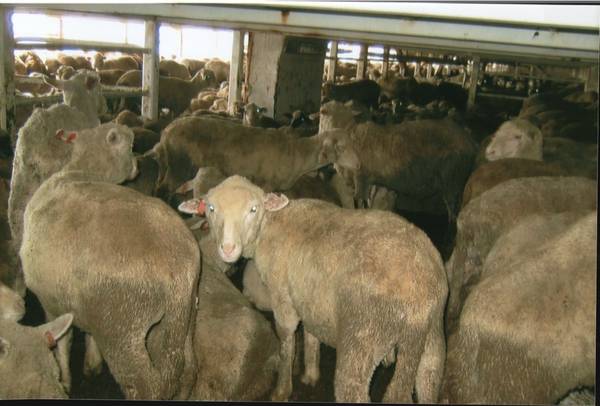
South Africa’s NSPCA has confirmed the presence of contagious ecthyma, an infectious dermatitis of sheep and goats, which is contagious to humans too, in a herd bound for Kuwait and Saudi Arabia.
NSPCA National Inspectors observed lesions on the lips of numerous sheep in an Al Mawashi feedlot which raised suspicions of contagious ecthyma (also known as “Orf”, “Vuilbek” or by its old English name, “Scabby Mouth”). Laboratory testing subsequently confirmed the animals being shipped on the Al Messilah for Al Mawashi were exposed to the virus. The NSPCA has actively pulled animals from the feedlot that displayed clinical signs.
During the course of the disease, which lasts up to four weeks, affected animals can go off feed, lose condition and may develop serious secondary infections at the lesion sites. This poses a serious concern in terms of the welfare of the animals on board the Al Messilah, says NSPCA, especially for those sheep that are not yet showing clinical signs but who could suffer on the vessel during their three-week journey. These animals, unable to eat, could starve to death whilst enduring unnecessary pain and suffering.
This disease also poses a threat to human health, as it is a zoonotic disease that can result in painful sores to humans coming into contact with the animals.
The Al Messilah has now sailed. Should the shipment be rejected by Kuwait and Saudi Arabia, the South African government has confirmed with the NSPCA that South Africa will not be able to accept the returning animals.
Shipments from Australia where the disease has been found have been rejected by the Middle East in the past.
“Whilst 'orf' is usually a disease of low grade concern, it can impede feeding and result in weight loss of sheep by causing pain in the mouth and lip areas from deep scabs,” says industry commentator and former live export veterinarian Dr Lynn Simpson. “The usual concern is that humans can contract it. Humans generally only get lesions on their hands, and it resolves within a few weeks.
“Sheep are routinely vaccinated in Australia before live export as the much greater risk is political and that the consignment will be rejected especially from countries in the Middle East, such as Saudi Arabia and Bahrain, as has happened with the MV Cormo and the MV Drover respectively. Both incidents resulted in immense suffering for the animals due to subsequent management. Many of the animals from the Drover were bludgeoned and buried alive in Pakistan after the Bahraini rejection. The welfare risk is too high to send animals positive for this condition.”




